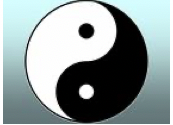
The consciousness shift of this planet has happened. Subtle, flowing, all encompassing and silent.
There wasn’t a specific event or a particular time. It didn’t happen everywhere at the same time. But sometime over the past few years, it has occurred. The more sensitive ones noticed it first and it is still rolling along.
But then on December 31, 2019 an unknown virus appeared in Wuhan China and the invisible became visible.
What is the shift? A tectonic change in our beliefs. Who we are, what our purpose is and how we act has shifted. And it has occurred at several levels. Let’s summarize:
People have moved from being the center of existence[1] to a willfulness, to a more aware, purposeful and in control.
Organizations have moved from being the source of identity to something less “spiritual” to a more functional, more in service to a greater good and fluid.
Technology has moved from being a functional tool to a source of being, connectedness and relatedness.
In short, the shift has been from the yang force to the yin force.

And with that the rules of exchange have changed
“The coronavirus pandemic marks the end of our romance with market society and hyper-individualism.” Eric Klinenberg Professor of sociology and Director of the Institute for Public Knowledge, New York University.
- Hear the truth, believe it, practice it (Zen saying)
- I learn by going where I have to go (Theodore Roethke)
- True words aren’t eloquent: eloquent words aren’t true.
- Wise men don’t need to prove their point; men who need
to prove their point aren’t wise. (Lao-Tzu)
- The quest for certainty blocks the quest for meaning. (Eric Fromm)
- Control of nature is an illusion.
- The flow of the universe is from hard, cold, masculine to soft, warm, feminine. It goes from penetrating to enclosing.
- Fear of change paralyzes action.
Old Rule 1: Constraint on markets creates scarcity. Scarcity raises prices. Cattle as an example.
New Rule: Freedom. Content multiplies at no (or very little) marginal cost. Books as example.
Old Rule 2: Economies of scale reduce marginal costs and therefore price—after a certain investment level in plant/equipment on repetitive processes.
New Rule: No economies of scale because non-uniformity of process
Old Rule 3: Fixed costs reduces uncertainty.
New Rule: Cost of production must be variable
Old Rule 4: Closed markets increases price.
New Rule: Open markets drive down price
Bottom line is that “effectiveness in use” or utility is the value-added imperative. Not cost, not quality (within bounds) and not service, except at very high end.
New
principles: kindness, simplicity (or the absence of excess), and modesty.
Let’s have Black take us out:
[1] Ayn Rand has become dysfunctional. Gordon Gecko is dead.


Leave A Comment
You must be logged in to post a comment.